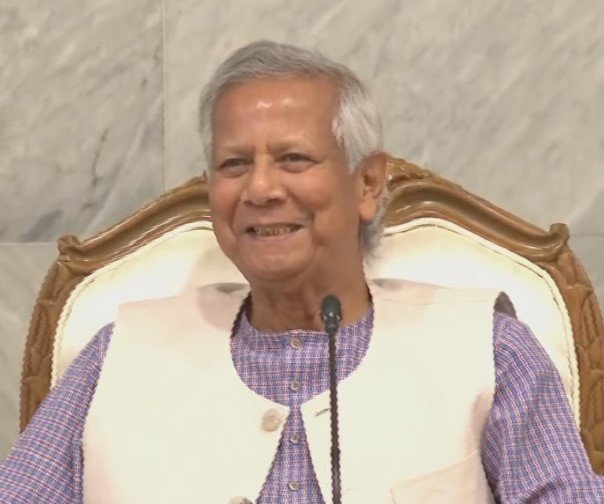Bangladesh stands at a tense crossroads, described by Chief Adviser Prof. Muhammad Yunus as a “war-like situation” following the government’s ban on the Awami League’s activities earlier this month. With growing internal chaos and external pressures, Yunus and political leaders are calling for unity, vigilance, and a clear path forward to protect the country’s fragile progress.
In a series of meetings with representatives from 20 political parties, Yunus stressed the urgent need to guard Bangladesh against forces trying to push it backward. The stakes are high as the nation prepares for upcoming elections slated between December 2025 and June 2026—a critical period seen as decisive for Bangladesh’s future.
A Nation Under Siege: Inside and Outside Pressures Mount
Prof. Muhammad Yunus didn’t mince words. He described the current climate as not just political unrest but a full-scale “war-like situation.” This isn’t just about rival parties squabbling—he spoke of coordinated efforts, both internal factions and external actors, attempting to destabilize the country after the ban on the Awami League on May 12, 2025.
“It’s like we’re caught in a storm from all sides,” Yunus said, as quoted by his press secretary Shafiqul Alam. “This has pushed us back, made everything collapse, and forced us into a state of subservience.” The image is stark and unsettling—a nation not just fighting political battles but struggling to keep its sovereignty intact.
The ban on the Awami League, a major political force, has only intensified tensions. Since then, Yunus noted, there have been “relentless efforts” aimed at causing further instability. The atmosphere is charged, and the call for unity rings louder than ever.

At the heart of these concerns is a nation trying desperately to avoid sliding into chaos. The sense of urgency is palpable, with Yunus assuring the country that he would never do anything to endanger its security. “I felt confident as we all sat together,” he said, signaling hope amid the turmoil.
Election Roadmap: Clear Timelines and Accountability Demanded
One of the standout moments from Yunus’s meetings with political parties was the collective emphasis on having a clear roadmap. Leaders want transparency on reforms, detailed election processes, and accountability—especially concerning the mass atrocities linked to the July uprising.
Everyone agreed on one point: the elections must happen before June 30, 2026, with the possibility of starting as early as December 2025. Yunus reaffirmed this timeline, a commitment that seemed to satisfy most parties involved.
But the roadmap isn’t just about dates. Political groups pressed for clarity on the reforms needed to ensure a fair, credible election. They also demanded accountability for those responsible for the July killings, including calls for trials of Awami League leaders accused in connection with those events.
The mood in the meetings was serious but hopeful, with a shared understanding that the stakes couldn’t be higher. Bangladesh is at a pivot point, and the upcoming elections are seen as a chance to reset and rebuild—if handled with care.
Yunus’s Balancing Act: Confidence Amidst Challenges
Prof. Yunus’s role is not an easy one. He’s the chief adviser during an exceptionally volatile period, responsible for steering the country through political storms and uncertainty. His statements reflect a balancing act—on one hand, acknowledging the seriousness of the situation, and on the other, projecting confidence that Bangladesh can still hold together.
“I will feel guilty if I fail to hold a fair election,” Yunus said. That’s a heavy burden. But his tone suggests determination. He appears to understand that the legitimacy of the interim government hinges on its ability to conduct free and fair elections.
The political parties’ acceptance of the election timeline indicates some level of trust in Yunus’s leadership, but skepticism lingers. The country’s deep divisions won’t disappear overnight, and the tension between protecting security and ensuring democratic processes remains a tricky tightrope.
Still, the chief adviser’s repeated calls for unity and vigilance hint at a pragmatic approach. It’s not just about political maneuvering—it’s about survival. Bangladesh faces a fight that goes beyond politics; it’s about protecting its sovereignty and future.
The Shadow of the July Uprising: Justice and Reconciliation
A dark cloud hanging over all discussions is the July uprising and the violence that followed. The crackdown left many dead, and allegations against various political leaders have fueled demands for justice.
The political parties present at Yunus’s meeting made it clear: the interim government must pursue accountability. Trials for Awami League leaders accused of involvement in the mass killings are a critical demand. Without addressing these wounds, the national fabric risks tearing further.
This demand complicates the political landscape. The ruling and opposition factions are deeply entangled in the events of July, and bringing these cases to court risks inflaming passions even more. Yet, for many, justice is a non-negotiable part of moving forward.
Balancing accountability with reconciliation will be a challenge for Yunus’s administration as it tries to calm the political waters ahead of the elections.
What Lies Ahead: A Tense Road to 2026
Bangladesh’s immediate future looks uncertain, to say the least. The political tensions are thick in the air, and the risk of further unrest looms large. Yet, there’s also a cautious hope. The collective agreement on election timing and the open calls for reforms suggest some willingness to find common ground.
Political watchers will be keeping a close eye on how Yunus manages this period. Can he pull off a fair election while keeping the peace? Will the calls for justice be met without sparking more conflict? The answers will shape Bangladesh’s path for years to come.
